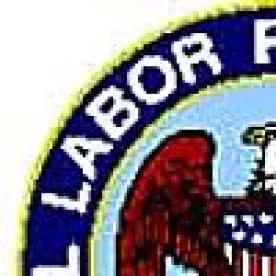Last week, in a setback for employers, the National Labor Relations Board (NLRB) adopted a new legal standard to determine whether facially neutral policies, handbook provisions, and work rules – those that don’t expressly restrict an employee’s National Labor Relations Act (NLRA) rights – are nevertheless unlawful under Section 8(a)(1).
The Board’s journey to this ruling began in 2004, when it issued Lutheran Heritage Village-Livonia, 343 NLRB 646 (2004). There, the Board held that facially neutral policies, handbook provisions, and work rules fell under the NLRA if employees could reasonably construe them to prohibit conduct that the Act protects. That broad, employee-centric formulation placed countless policies, handbook provisions, and work rules, even well-intentioned ones, in legal jeopardy under the Act – including those that had not been applied or enforced.
The Board changed course, in 2017, when it issued Boeing Co. (2017). Lutheran Heritage, the Board declared, did not give “meaningful consideration to the real-world ‘complexities’ associated with many employment policies, work rules and handbook provisions.” Not only that, according to the Board, Lutheran Heritage “produced rampant confusion for employers, employees and unions.” Plus, applying the Lutheran Heritage standard led the Board to invalidate” a large number of common-sense rules and requirements that most people would reasonably expect every employer to maintain.”
Henceforth, the Board said that it would apply a balancing test. “[W]hen evaluating a facially neutral policy, rule or handbook provision that, when reasonably interpreted, would potentially interfere with the exercise of NLRA rights, the Board will evaluate two things: (i) the nature and extent of the potential impact on NLRA rights, and (ii) legitimate justifications associated with the rule.”
Also, to provide greater clarity, the Board created a categorical classification system for evaluating work rules.
- Category 1 Rules: Those that do not interfere with Section 7 rights or for which the rules’ justification outweighs their negative impact. Such rules, according to the Board, are always lawful. Some examples – Rules that prohibit cameras in sensitive areas, that require harmonious interactions and relationships, and that require employees to abide by basic civility standards.
- Category 2 Rules: Those that warrant an individualized assessment to determine (1) whether they would prohibit or interfere with the exercise of NLRA rights; and if so, (2) whether the employer’s justification for the rules outweighs that concern.
- Category 3 Rules: Those that, given their impact on protected activity, can never be justified. Such rules, according to the Board, are always unlawful. They include rules that prohibit employees from discussing wages or benefits with one another.
Employers welcomed the new standard. It would be short-lived.
In August 2021, NLRB General Counsel Abruzzo signaled that she would seek to persuade the Board to reverse the Boeing standard. About five months later, in Stericycle, Inc. 371 NLRB No. 48 (2021), the Board invited parties and amici to submit briefs on whether it should adopt a new legal standard. This week, the Board overruled Boeing.
Meet The New Test, Same as the Old Test (Almost)
In its August 3, 2023 decision in Stericycle, Inc., the Board announced a return to a modified Lutheran Heritage test. Under this standard, the NLRB’s General Counsel bears the burden of establishing that a facially neutral work rule has a “reasonable tendency to interfere with, restrain, or coerce employees who contemplate engaging in protected activity.” In evaluating whether the General Counsel has met this burden, the Board will interpret the rule from the “standpoint of employees over whom the employer has a measure of economic power.” An employee, the Board held, is “readily inclined to avoid violating a rule” and may interpret it more broadly or restrictively than a disinterested observer. The Board also held that the typical employee interprets rules “as a layperson rather than as a lawyer.” In short, the Stericycle test greatly reduces the General Counsel’s burden for proving that a work rule is unlawful.
The burden then shifts to the employer to rebut the presumption of unlawfulness by proving: (1) that the rule advances a “legitimate and substantial business interest”; and (2) that the employer is unable to advance that interest with a more “narrowly tailored rule.” The Board analogized this to an affirmative defense, in which the employer can overcome the presumption that a given work rule is unlawful. As the dissent noted, however, it is not yet clear how the Board intends to assess whether a rule is “narrowly tailored,” and employers could have difficult time meeting this burden.
In adopting the Stericycle test, the Board also abandoned the categories set forth in Boeing in favor of a case-by-case approach. Under Boeing and its progeny, the Board had ruled that certain work rules were always lawful, including prohibitions on cameras in the workplace and maintaining the confidentiality of workplace investigations for the duration of the investigation. Going forward, employers will bear the burden of proving that these rules, like all others, are narrowly tailored to advance legitimate business interests.
Retroactive Application and Next Steps
The Stericycle decision applies retroactively. Current work rules held lawful under the Boeing test may be challenged anew under Stericycle. Indeed, the work rule does not even need to be enforced to be subject to challenge; an employee could file unfair labor practices arguing that any policy an employer maintains is unlawful. Employers should also be aware that the NLRA’s jurisdiction extends over most non-supervisory employees, including those who are not represented by a Union.
Employers should carefully review their current policies, rules, and handbooks, with counsel, to evaluate (1) whether they might, from an employee’s perspective, “interfere with, restrain, or coerce employees” in their rights under the NLRA; and,(2) if so, whether there is a more narrowly tailored rule that will accomplish the employer’s purpose.
The ArentFox Schiff Labor & Employment Practice will continue to monitor developments in this area. If you have any questions, please contact the authors or the ArentFox Schiff professional who regularly handles your matters.




 />i
/>i

